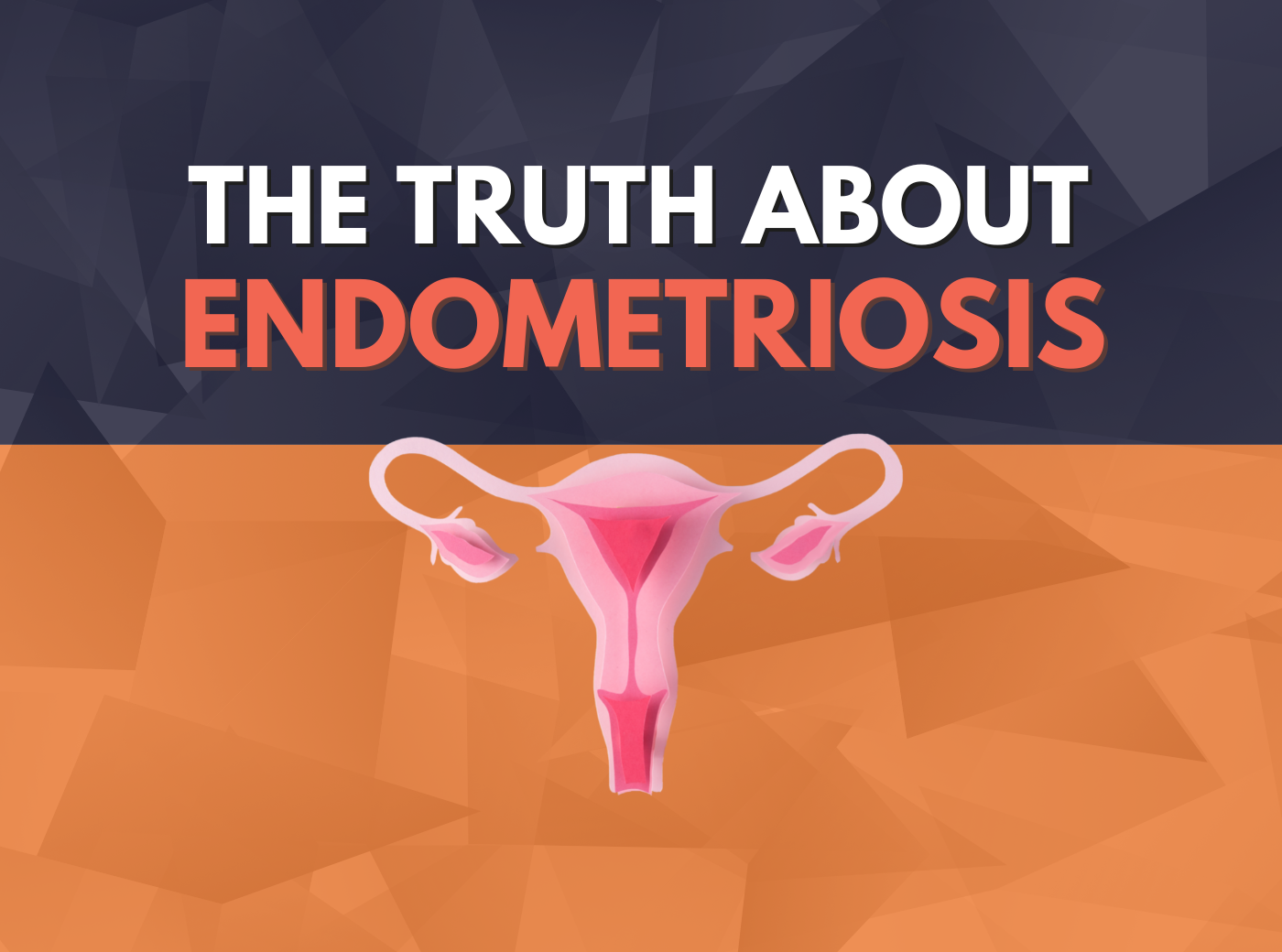Written by Matthew Ainsworth
Matt ipsum dolor sit amet, consectetur adipiscing elit, sed do eiusmod tempor incididunt ut labore et dolore magna aliqua. Proin eu sapien tincidunt, fermentum urna sed, pretium enime gestas.
Link copied

Endometriosis affects around 10% (nearly 190 million) of people who are assigned female at birth and are of reproductive age globally.
But it’s not a commonly known condition. In fact, more than half (54%) of the UK population are unaware of its existence.
Let’s take a closer look at what it is and the impact it can have on peoples’ lives.

Endometriosis causes tissue (similar to the lining of the womb) to start growing in other places. This includes the ovaries and fallopian tubes.
It’s a long-term condition that can affect people of any age from puberty through to menopause and can take several years to diagnose.
The average wait for diagnosis is between 6 – 10 years. This is largely down to the symptoms being dismissed as just being a ‘bad period’ and often being similar to other diseases.
You can watch one woman’s story of her struggle to be diagnosed further down this blog
Symptoms of endometriosis include:
There is no known cure for endometriosis, but treatment can help relieve your pain, slow the growth of endometriosis tissue, and stop the condition from returning following surgical removal.
Treatments vary from taking anti-inflammatories (such as ibuprofen or paracetamol), to hormone treatments, and surgical intervention (typically a laparoscopy or hysterectomy).
Several factors will determine the best course of treatment for you. This will include your age, your symptoms, whether you hope to get pregnant in the future, and other treatments you may have already tried.
The condition sometimes gets better by itself, but it can get worse if not treated.
The exact causes of endometriosis are unknown. However, several theories have been suggested, including:
NHS England suggests that “none of these theories fully explain why endometriosis happens” and that it is “like the condition is caused by a combination of different factors”.

Apart from the symptoms listed above, how else could endometriosis impact your life?
One of the main complications is difficulty in getting pregnant and possible infertility.
Natural conception remains possible, with 60 -70% of women with endometriosis estimated to be able to get pregnant spontaneously.
However, for those who struggle with fertility as a result of the condition, treatments including laparoscopic surgery to remove endometriosis tissue, and IVF are commonly used to increase your chances of conception.
As well as fertility problems, a 2015 study in the Journal of Psychosomatic Obstetrics & Gynecology, highlighted: “Endometriosis patients with pelvic pain had poorer quality of life and mental health as compared with those with asymptomatic endometriosis and the healthy controls.”
People who experience debilitating pain as a result of the condition may find themselves prevented from doing everyday tasks or activities (like going to work) and this can negatively impact mental health.
Pain during or after intercourse has also been shown to cause people to avoid sex and can lead to strained relationships and intimacy levels.
TikTok star, @christyprn recently shared her real-life experience of suffering from endometriosis, and her struggles to get diagnosed.
You can watch her story below:
@christyprn Put a finger down- Women’s health edition. ✨🙃 #healthcare #healthcarereform #patientadvocate #womenshealth #healthdisparities
Several celebrities have also been vocal about their experiences with endometriosis.
In September 2021, comedian Amy Schumer underwent surgery to remove her uterus as a treatment for the condition.
In an Instagram post just after her surgery, she said: “The doctor found 30 spots of endometriosis that he removed.
“He removed my appendix because the endometriosis had attacked it.
“There was a lot, a lot of blood in my uterus and I’m, you know, sore and I have some, like gas pains. But other than that, I already feel that my energy is [returning].”
In 2016, singer Halsey described the moment she was diagnosed with endometriosis as being “bittersweet”:
If any of my fans or followers have #endometriosis 💛 having a rough time today. laying in bed thinking of you. pic.twitter.com/LOQVn5BsSg
— h (@halsey) January 29, 2016
They have since gone on to document their struggles with fertility, notably freezing their eggs in 2018 following a miscarriage. Halsey has since welcomed a child in 2021.
You should speak to your doctor if you have any of the symptoms of endometriosis outlined above – especially if they are having a debilitating impact on your life.
NHS England and Endometriosis UK recommend writing down your symptoms before seeing a doctor.
You must share as much information with your doctor as you can to help with diagnosis.